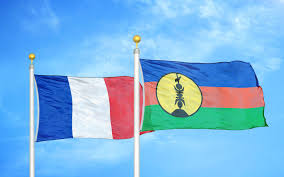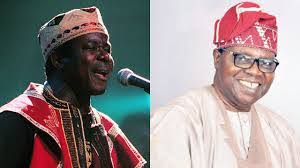Sixty years after independence, it is safe to say, the vision, zeal and motivation of our leaders past are visibly lacking in our contemporary leadership. Obviously, the leadership style adopted by successive governments negates the principles of good governance and equity. The model, if any, had not and cannot lead Nigeria to where the past leaders desired. Nigeria has become the epicenter of terrorism, proverty, banditry, fraud, corruption and other forms of criminality. How the did we get here, when, and at what point did Nigeria denegrate to a near-failed state?
It’s not rocket science to put the nation back on the path of growth and development. Most devlopment experts agree on simple steps to achieve national growth and sustainable development. They include promoting education. Investing in education leads to creating an informed society. Science and technology based education is a critical recipe to fast-track development. China and India are classical examples on how technology has held-sway in theirr mainstream economic empancipation.Sadly, even by UNICEF standard, Nigeria has failed to implement the 25% budgetary allocation to education.Power or the energy sector is the most critical in developing a 21st century economy, because many businesses depend on electricity to thrive. Many manufacturing firms had decried the unavailability of power. In recent years, many companies had either shut down, or move their operations abroad. From 1999 till date, well over $50 billion had been spent on the power sector, yet, day and night, Nigerians continue to groan under darkness.
Agriculture, which should have been the lifeline or backbone of the country, has been the most neglected. With vast arable land, Nigeria does not have business importing any form of food to feed her population. Successive governments’ over reliance on oil and petrodollars had stiffled the agricultural sector. Malaysia started off at about the same time with Nigeria, today she’s leading the pack in palm and other agricultural produce. Nigeria’s agribusiness drive, which should have emphasized on cash crops to help boost her for, has suffered setback due to government’s nonchalance. Although, the present administration had shifted its focus to combat foreign importation, more still needs to be done in that aspect. Empowering, real-time/full-time farmers with funds and techniques is as important as air, because they would be the link to bridge any gap in the food supply chain.
In Nigeria, 60 years of independence could not guarantee effective healthcare delivery system. The decay in the health sector is worrisome, and, alarming. Those in leadership positions, and by extension, the ruling class and the elite, had lost faith in the sector. From 1999 till date, there had been no fewer than 30 strikes by Nigerian doctors and other health workers. These anomalies further exposed the most vulnerable population to health risk. Undaunted, government officials and the elite usually would embark on “Medical Tourism” in choice locations across the globe. In fact, Nigeria spends about $1billion annually on medical tourism. 60 years of Independence could not provide a near-perfect healthcare system in the country – that shows how inept the ruling class had been.
Since independence, Nigeria had not been this insecure, even the 1967-70 Civil War hadn’t exposed the country to this level of insecurity. The situation had deteriorated, leading to mistrust and distortion of inter-group relations. Mindless killings, terrorism, armed banditry, fraud and other criminality had become the features of the country. Eleven years on, Boko Haram insurgency has not been quelled, rather, new armed and deadly terrorist groups had emerged in the fringes of the Lake Chad. Billions of dollars had been expended to fight the insurgents, but, today, the terrorist are more formidable and deadly. 60 years of Independence ought have united the country against all odds rather than divide her. Nigeria’s diversity ought to have been her greatest asset. As the most populous nation in Africa, Nigeria should have been a model for development. If population is a parameter in measuring nation’s wealth, as is with China, then Nigeria has no business being the poorest nation in the world.
Leadership question, uneven distribution of resources and corruption had been some active reasons for Nigeria’s sorry state. A nation which does not celebrate and reward excellence, rather acknowledges mediocrity is bound for failures. Only in Nigeria, touts, criminals and ex convicts found themselves inadvertantly in leadership positions, and, are celebrated. A corrupt system breeds corrupt leadership which, in turn becomes endemic and stalled the progress and growth of any nation. Only recently, Nigeria’s anti-graft agency; the EFCC, was exposed as a harbinger and haven of corruption. The ex EFCC boss, his cronies and associates had their hands full of shameful corrupt practices.
60 years of independence should have guided Nigeria on where, how and when to achieve national greatness and cohesion. The journey is painstakingly slow, but, we must persevere. Our commitment and resolve in making this nation great should reach high-pitch. We do not have any country outside this entity. Elections are few years away, we must correct any wrong – at all cost!
Mohammed is with the Department of Political science and International Studies, Ahmadu Bello University, Zaria. He writes from Kano.[email protected]m




